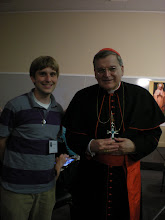In the third cycle of John Paul II’s catechesis on the theology of the body, he looks to Christ’s appeal to eschatological man, or rather, humanity’s destiny at the resurrection. This cycle is broken into two sections, which are each then further divided in two. In both sections, John Paul II discusses Christ’s words first, and then Paul’s teachings that echo what the Lord taught.
The first part of the first section deals with Jesus’ interaction with the Sadducees, which is recorded in all three synoptic Gospels. The key verses that emphasize the theology of the body are Mk 12:25, Mt 22:30, and Lk 20:35-36. The teaching seems straightforward enough there is no marriage in heaven, as it is an institution for “this world”. Additionally, the human person is destined for resurrection not only in his soul but in his body as well. Having already well-established that human subjectivity is shown in and by the body, it makes perfect sense that the grave is not the final state in which the body resides.
The second part, as indicated above, deals with St. Paul’s treatment. In addition to what was stated, St. Paul explores this idea of the destiny of the body by using Christ as the example of what glorified and resurrected human bodies will be like, drawing on the typology of Jesus Christ as the “new Adam”.
The first part of the second section, then, highlights the vocation of “celibacy for the kingdom” as Christ expressed in Mt 19:10-12. It’s important to stress two ideas on Christ’s words. According the John Paul II in line with the Church’s tradition, the call to “celibacy for the kingdom” is seen as a counsel, rather than a precept, meaning that only some are called to this vocation (all are called to follow precepts, e.g. chastity). John Paul II also addresses the notion that “celibacy for the kingdom” is ‘superior’ than the call to married life, in a certain way. It’s precisely because celibacy is chosen for the sake “of the kingdom” that it is ‘superior’.
St. Paul’s writings, in the second part of the second section, also take up this idea that celibacy, or continence, for the kingdom is ‘superior’, however, neither St. Paul’s nor Christ’s words indicate a certain inferiority of marriage. In fact, St. Paul says that marriage is good, yet continence for the kingdom is better, as it lets the person focus on the things of the Lord. John Paul II also clearly explains that celibacy for the kingdom is to be a voluntary choice by (i.e. not to be forced upon) the person called to it.
John Paul II concludes the third cycle with one audience, in an effort to inspire hope in the redemption of the body.




No comments:
Post a Comment